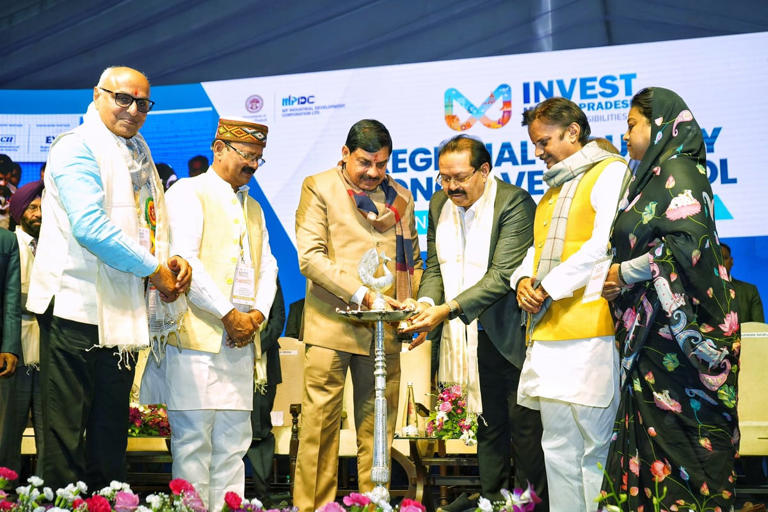The Madhya Pradesh government‘s ambitious water conservation program, Jal Ganga Sanvardhan Abhiyan, is showing remarkable progress. Launched on March 30, 2025, by Prime Minister Narendra Modi, this mission focuses on the restoration of rivers, water bodies, and wetlands across the state.
Revival of Ghoda Pachhad River in Khandwa
Thanks to strong community participation, the Ghoda Pachhad River, a tributary of the Narmada River, has been successfully revived in Khandwa district. Years of excessive groundwater extraction had dried up the river, severely affecting local agriculture.
Using the Ridge to Valley approach, the state built water conservation structures that help collect and store water along a 33-kilometer stretch. This method captures rainwater at higher elevations and slows runoff, allowing water to seep into the ground. As a result, perennial water flow has returned to the river, giving hope for year-round water availability in the region.
Tackling Pollution in Major Rivers
A survey by the Madhya Pradesh Pollution Control Board revealed that nearly 450 million litres of untreated domestic wastewater enter rivers such as the Narmada, Chambal, Shipra, Betwa, Son, Tons, Tapti, Kanh, Mahi, Sindh, and Ben Ganga daily through 158 drains.
To combat this, the Urban Development Department is building Sewage Treatment Plants (STPs) with a total capacity of 869 million litres per day (MLD) to treat the wastewater before it reaches these rivers, ensuring cleaner and healthier water bodies.
Growth in Ramsar Wetlands and Wetland Conservation
Madhya Pradesh had only one Ramsar Site in 2002, but by 2025, this has increased to five Ramsar Sites, highlighting the state’s commitment to wetland conservation. Notably, Indore has earned the title of India’s first Wetland City.
Following the Supreme Court’s directives, the State Wetland Authority completed physical verification and mapping of 13,565 wetlands larger than 2.25 hectares on time. Additionally, the Indore Municipal Corporation and EPCO have preserved 330 traditional wells and stepwells, reviving the city’s historic water heritage.
Public Participation: The Key to Ecological Balance
Chief Minister Mohan Yadav emphasized the importance of public participation in protecting the ecological balance. He stated that rivers, trees, mountains, and humans are interconnected, and the Jal Ganga Sanvardhan Abhiyan represents the shared responsibility of safeguarding water, nature, and life for future generations.









